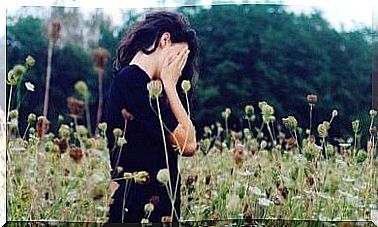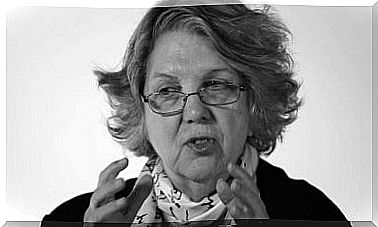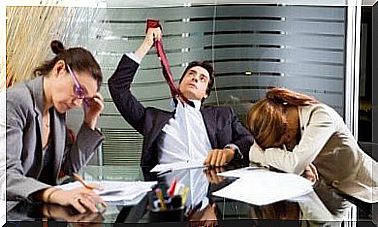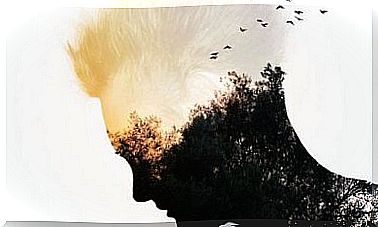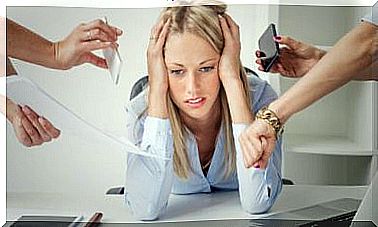Why Do I Get So Tired When I Have Anxiety?
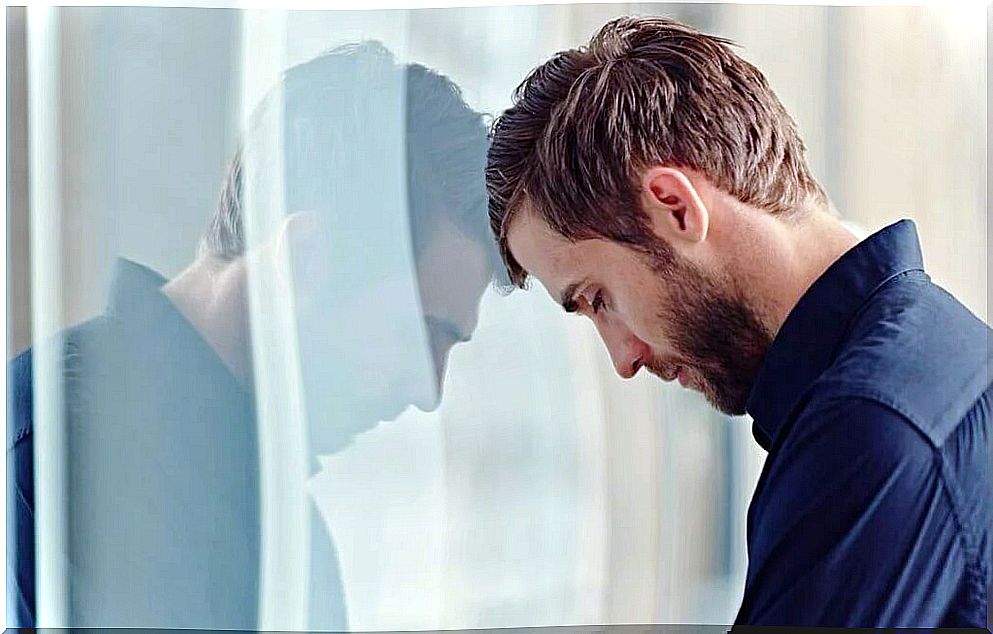
Why do I get so tired when I have anxiety? Many people ask themselves this question when they go through periods of severe psychological struggle. The body is heavy, the muscles ache, there is pressure on the chest and at all times there is the need to sit down a little to recover energy (and even the will). What is the reason for this? What explains this phenomenon?
This reality has been studied since the beginning of the 20th century and, specifically, since the First World War. Something that was observed in hospital wards was how a large number of soldiers returning from war not only had injuries to their bodies: they also suffered from anxiety disorders and depression. Besides, along with the mental problems, another symptom appeared: extreme and persistent tiredness.
At the time, doctors called this manifestation “combat fatigue”. So, over the decades, we have a much better understanding of this clinical reality and all the biochemical and physiological processes associated with these psychological states. Let’s look at it in more detail.
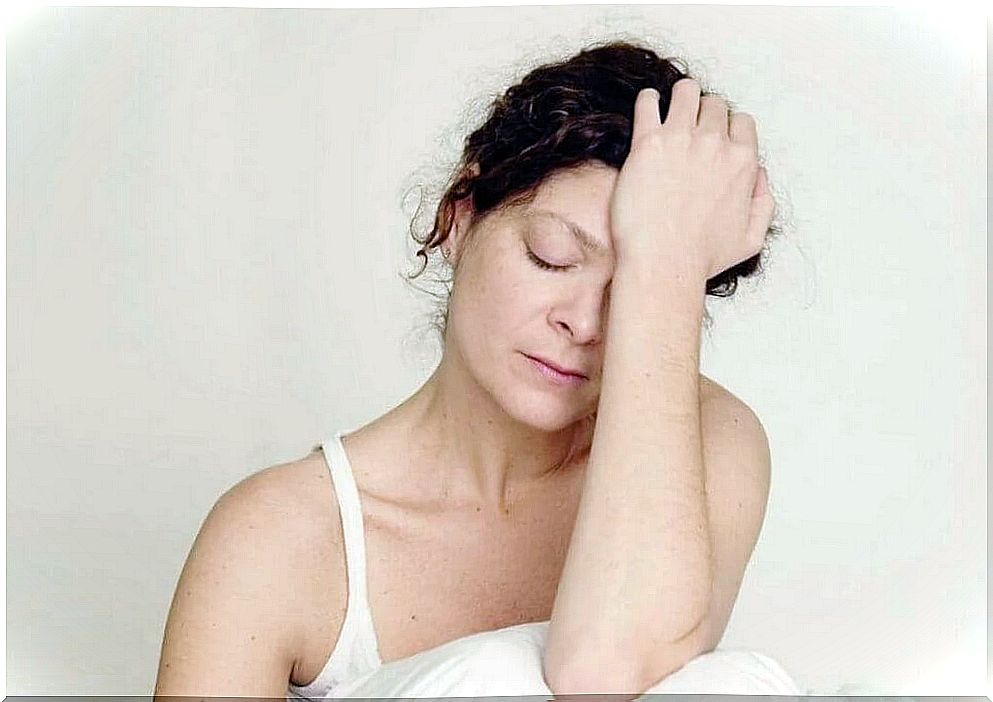
Why do I get so tired when I have anxiety? Causes to consider
Fatigue usually has two origins: either it is the result of a physical effort maintained over time or, on the contrary, it responds to psychological causes. It is possible that the last cause seems contradictory to many people. However, data relating to labor issues, for example, are there.
In a study carried out at the Department of Psychiatry at the University of Manitoba, Canada, an interesting aspect was analyzed. The cost of depression and anxiety disorders in the world of work is immense. One of the dimensions most closely related to absence from work is fatigue. Many people feel unable to focus and be productive in reaching their goals.
In addition, it is also common not to be able to lead a normal lifestyle. Things that we once enjoyed, like going out for a walk or having leisure time, require too high a level of effort and energy. What is the reason for this? Why do I get so tired when I have anxiety? These are often the causes.
Adrenaline and anxiety: physical activation that does not rest
Both stress and anxiety lead to increased production of adrenaline and norepinephrine. These two hormones have a purpose: to help you react or flee in the face of a threat.
- In this way, it is possible to raise heart and respiratory rate and blood pressure and, in addition, cortisol secretion is facilitated. Under normal circumstances, this reaction is brief. Once the threat disappears, the body returns to its normal levels.
- However, when anxiety is persistent (and the threat is not specific), the continued presence of these hormones in the body is very harmful: then exhaustion, headaches, digestive disturbances, tachycardia appear…
On average, when a person suffers from an anxiety disorder, exhaustion is not the only noticeable symptom. It is common for a person to experience many of the dimensions listed above. All of this is the clear result of a body and an organism that are always activated, ready to react to something. And as we can well imagine, this is exhausting.
The muscles, the most affected
Anyone who suffers from anxiety continuously or who has experienced it at some point in their life will have noticed this aspect. This psychological state turns the body into a heavy stone: the legs ache, the arms barely support the weight, and the back and neck region is one of the most critical.
Muscles are a region where anxiety has a major impact. This is because the brain takes much of the energy to these parts to react and facilitate this related fight-or-flight response. The tension built up over days takes its toll in the form of pain and exhaustion.
Your brain could also be sending a message.
When a person asks himself why he gets tired when he feels anxiety, he should consider one thing: maybe the body is saying something. This exhaustion can be a defense mechanism of the brain. He emits a general exhaustion response to stop us, to make us stop.
However, one detail must be taken into account: tiredness caused by anxiety is not resolved by sleeping thirty hours straight. In other words, physical rest does not solve the mental problem.
This generalized exhaustion response that the brain emits also seeks to make us pause to reconsider. Changing habits, setting priorities, managing emotions, healing past and present problems are the best strategies. It’s the ideal thing to do.
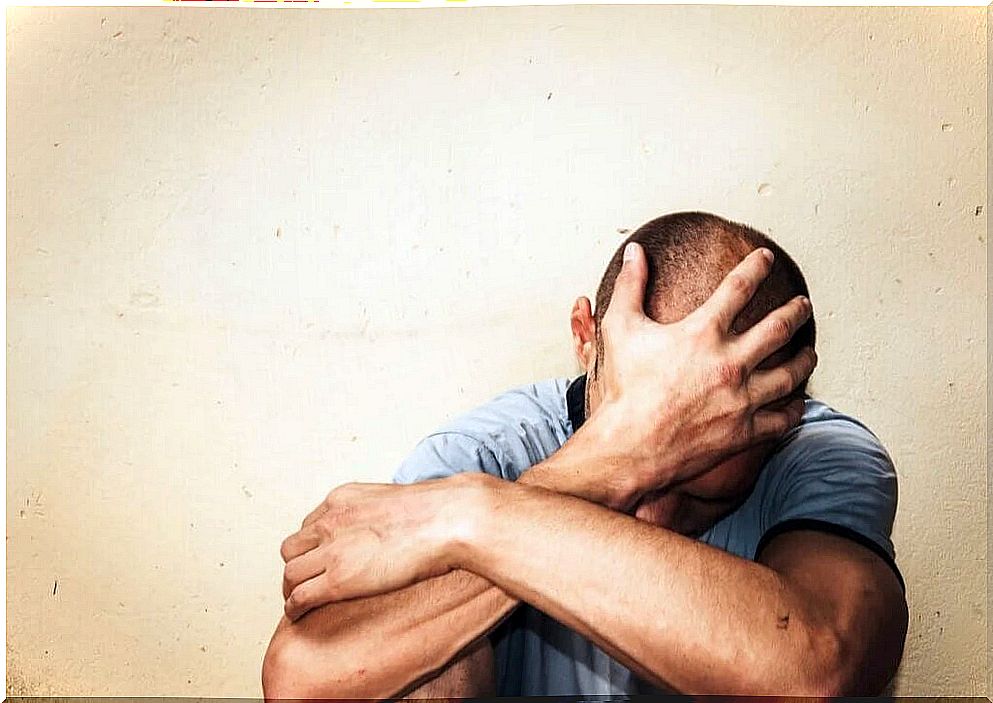
Don’t forget to discard organic factors
We know that anxiety causes a great number of psychological and organic manifestations: constant worry, concentration problems, sleep disturbances, stomach pain and physical exhaustion. However, it should not be taken for granted that this constant fatigue is an obvious effect of this mental condition.
It is advisable to consult the doctor in order to understand what is happening to us. In many cases, this tiredness can also be the origin of an alteration in the thyroid, an anemia problem, etc. To treat anxiety disorders, it is advisable to have the help of a psychologist and also the supervision of our general practitioner.
When your body speaks, you not only need to hear it, you also need to give it the response it needs.


